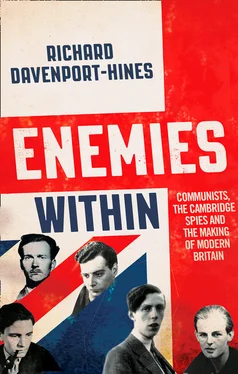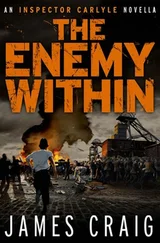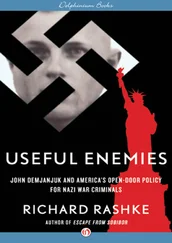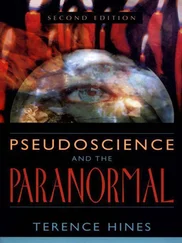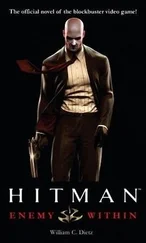During the civil war, the Bolsheviks lost control of large parts of the Romanov empire to the anti-Bolshevist, monarchist and nationalist forces known as the White armies. At first the Ukraine, the Caucasus, the Baltic provinces and central Asia were wrested back; but by the treaty of Riga in 1921 Ukraine was partitioned between the Soviet Union and an expanded Poland. Ground was lost in Finland, the Baltic littoral, western Belorussia and Bessarabia. Soviet Russia was seen by the Bolshevik leadership as a dismembered version of imperial Russia. Russian military advances into Poland and Finland in 1939–40 show the Stalinist priority in regaining the lost territories of 1918–20. In the spring of 1945 Russia was able to reoccupy Poland, Estonia, Latvia and Lithuania, and to begin renewing its territorial and ideological control elsewhere. Britain, with its history of intervention in the civil war and as the only western European power with a major Asiatic empire, was a primary adversary, which needed to be met with espionage, subversion and ultimately sabotage. 10
‘How can you make a revolution without firing squads?’ Lenin asked in 1917. ‘Do you really believe that we can be victorious without the very cruellest revolutionary terror?’ he demanded a year later. Soon he instituted so-called People’s Courts, which have been described by Victor Sebestyen as ‘essentially ad hoc mob trials in which twelve “elected” judges, most of them barely literate, would rule less on the facts of the case than with the use, in Lenin’s words, of “revolutionary justice”’. After issuing a decree in 1918 permitting the summary shooting by Red Guards of enemy agents, profiteers, marauders, hooligans and counter-revolutionary agitators, Lenin regretted that it would be impolitic to rename the Commissariat of Justice the Commissariat for Social Extermination. 11
Walter Krivitsky, the first major Soviet intelligence defector, said in his MI5 debriefing of 1940 that the moment when Bolshevism swung from socialism with benevolent hopes to an entrenched tyranny occurred in 1921, with the crushing of the revolt at Kronstadt naval base. A mass meeting of sailors of the Baltic fleet demanded free parliamentary elections, the establishment of non-communist trade unions and the abolition of internal political police. Their defiance was suppressed by 20,000 Red Army soldiers whom Trotsky had promised would shoot the sailors like partridges. The quashing of the Kronstadt protest was nasty, brutish and short: reading Trotsky’s book Whither England? in 1925, the political theorist Harold Laski reflected that ‘the whole Bolshevik psychology is merely Hobbes redressed in Marxian costume’. The Hobbesian absolutist system was intended to optimize the subject’s peace and security; but, as Locke said, the tranquillity of Hobbes’s ideal commonwealth was the peace and security of a dungeon. 12
Dissidents across ancien r é gime Europe had to contend with ‘perlustration’ (government interception and reading of mail to discover what the population is thinking and writing). The Okhrana had cabinets noirs , or ‘black chambers’, where private and diplomatic correspondence was intercepted and read, in the ten main post offices of tsarist Russia, although this involved a total staff nationwide of only forty-nine people in 1913. After the Bolsheviks had attained power in 1917, they found that a state monopoly of propaganda was the best way to monitor thoughts, control the masses and inculcate them with socialism. By 1920 they had 10,000 officials trained to read the post in Russia. They destroyed letters that criticized the regime, and quoted from representative samples when compiling summaries of mass opinion. Surveillance reports were indispensable to policing public opinion in inter-war totalitarian states, whether Bolshevik Russia, Nazi Germany or fascist Italy, and to maximizing the effects of state propaganda. Most militant Marxist revolutionaries before 1917 were ‘staunch fighters for political freedom’, as Lars Lih, the historian of Leninism, has written. ‘One of the most important political facts about the rest of the twentieth century was that the most orthodox and militant advocates of revolutionary Marxism were devoted to regimes that crushed political freedom to an unprecedented degree.’ 13
‘Russia is a country which it is very easy to invade, but very difficult to conquer,’ Lloyd George told parliament in 1919. ‘Starvation, bloodshed, confusion, ruin, and horror’ had been the outcome of the revolution two years earlier: he loathed ‘Bolshevik teachings’, but ‘would rather leave Russia Bolshevik until she sees her way out of it than see Britain [go] bankrupt’ as the result of military intervention against the revolutionaries. Soviet Russia nevertheless felt itself to be the target of relentless encirclement by capitalist forces and secret agents. This federation of socialist republics covered a huge area without natural defensible frontiers. Amid multitudinous evidence of London’s malign intentions, there was the agreement in 1920 between the English armaments company Vickers and its French counterpart Schneider-Creusot to develop the Polish metallurgy firm Starachowice into a munition works. Similarly, in 1921–3, Vickers invested in the privately owned naval yards at Tallinn in Estonia, becoming sole technical advisers and purchasing agents as recompense for its investment: they were, said their manager in Estonia, seeking orders for their British factories, but ‘also guided by the necessity of safeguarding as far as lay in our power the higher interests of British influence’. Both ventures proved unprofitable; but it is not surprising that the Soviets felt defensive security measures were needed. 14
The Bolshevists’ first Soviet intelligence agency, named the Cheka, was formed in December 1917 with the intention of defending and extending the dictatorship of the proletariat. Much of the Cheka’s tradecraft was derived from the Okhrana, including the use of agents provocateurs to identify, incriminate and eliminate opponents. ‘Every Bolshevist should make himself a Chekist,’ Lenin once said. This was tantamount to saying that every communist must spy, steal, cheat, falsify documents, double-cross and be willing to kill. The Cheka’s emblems of a shield to defend the revolution and a sword to smite its foes were used as the insignia of its ultimate successor organization, the KGB. Until the disbandment of the KGB in the 1990s, many of its officers, including Vladimir Putin, described themselves as Chekists. 15
The Cheka’s priority was arresting, shooting, imprisoning or exiling in forced labour camps Russian counter-revolutionaries, class enemies and putative conspirators whom they accused of being financed by foreign capitalism. As one of its internal documents asserted in 1918: ‘He who fights for a better future will be merciless towards his enemies. He who seeks to protect poor people will harden his heart against pity and will become cruel.’ The Chekists of the 1920s believed themselves superior to bourgeois scruples about guilt and innocence, or truth and lies. ‘Give us a man, and we’ll make a case,’ their interrogators said with pride. As Nadezhda Mandelstam testified, the pioneer generation of Chekist leaders had modish cultural pretensions. ‘The Chekists were the avant-garde of the new people and they revised, in the manner of the Superman, all human values,’ she wrote. After their liquidation in 1937, they were succeeded by a very different type of political-police enforcer. 16
The tsarist Okhrana had been anti-semitic, stoked pogroms and thus drove many Jewish people into revolutionary sympathies. Under the Romanovs, Jews were barred from Russian citizenship and forbidden to print in Hebrew. Violent persecution, injustice and exclusion caused retaliatory resentment, which took political form. Many of the Chekist avant-garde were Jewish. If the fact that Lenin’s maternal grandfather was Jewish was then unknown, the identification of Kamenev, Litvinov, Radek, Trotsky and Zinoviev as Jews led to widespread European perceptions of Bolshevism as a Judaic influence. Lord D’Abernon, British Ambassador in Berlin, reflected in 1922 that Jewish small-traders in Germany felt ‘sneaking affection for the Bolsheviks. Many of them are inclined to regard their co-religionaries at Moscow as rather fine fellows, who have done something to avenge the misfortunes of the Jewish race; they consider Trotsky and the Cheka the apostolic successors to Judith and Deborah.’ 17
Читать дальше
